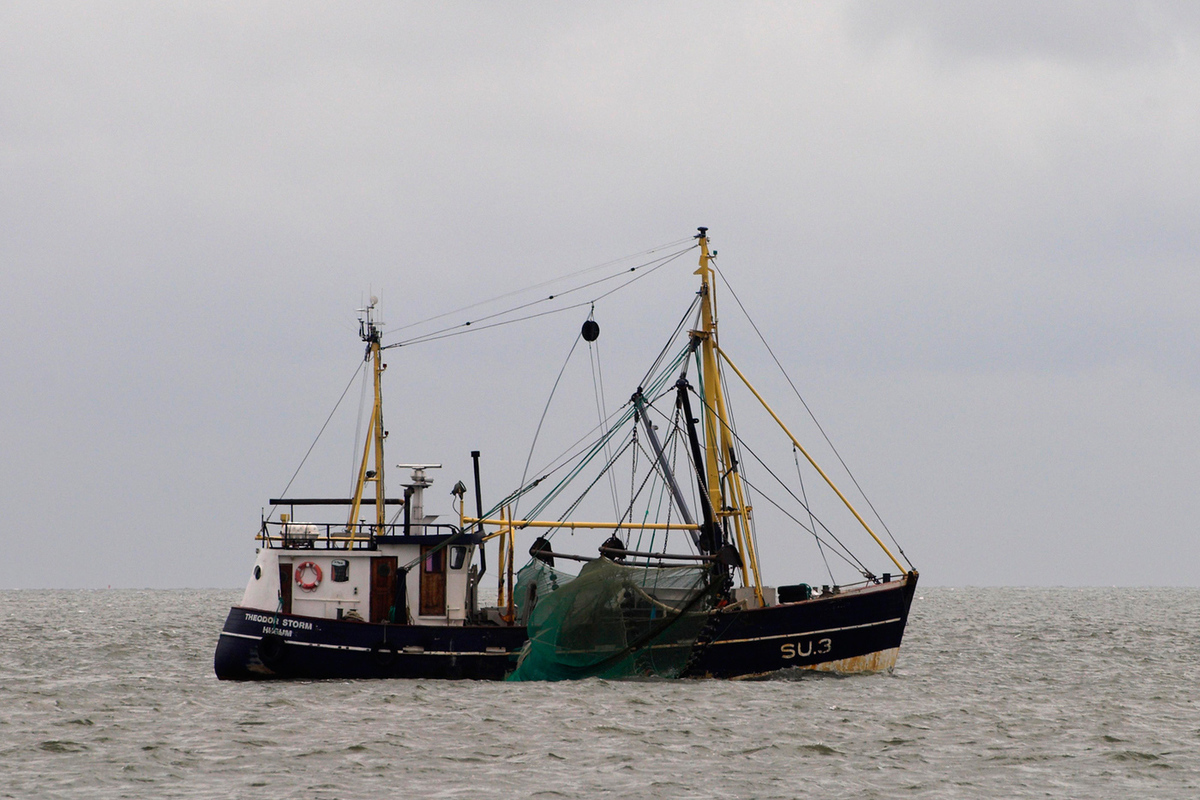Russia has banned Britain from fishing in the Barents Sea: how will London respond?
[ad_1]

Expert predicted food problems
The government has approved the denunciation of the 1956 fisheries agreement with the UK. Britons are now banned from fishing in the Barents Sea. As the Cabinet of Ministers previously explained, the need to denounce the document is dictated by the fact that in March 2022, the UK ended the most favored nation regime in bilateral trade. Which countries have the right to fish along the coast of the Kola Peninsula? How can Great Britain respond to Russia and what could “fish fights” lead to? MK addressed these questions to the experts.
Ilya Margolin, political strategist:
“According to international law, Russia and Norway have the right to fish in certain areas of the Barents Sea along the coast of the Kola Peninsula. These two countries have preferential fishing quotas for their fisheries in the region. About 80% of fishing quotas in the Barents Sea belong to Russia and Norway. In recent years, China has also taken an active part in fishing in the Barents Sea.
With regard to “unfriendly” countries fishing in this region, it should be noted that data on quotas and catch volumes are partially confidential and may change depending on current agreements and the context of international relations.
But there is an important point: British vessels have not been fishing in the Russian economic zone near the Barents Sea for more than 10 years. There are bilateral interstate agreements with other countries such as Norway and Iceland, and although they have periodically operated fisheries in the region in the past, they currently do not. Marine fisheries are a complex system that has existed for over 70 years, and all countries in this system are interdependent: they fish throughout the world’s oceans and in the North Atlantic. If the agreement with Great Britain is denounced, it may respond to Russia with diplomatic measures, including possible countermeasures in the field of fishing or other industries. However, the UK’s final decision and response will be determined by a complex of political, economic and diplomatic factors. First of all, for Russia this is a risk for fishing structures and an increase in prices by more than 50%. I believe that, like sports, fishing should not be affected by politics, especially such conflicts for the sake of conflict.”
Khadzhimurad Belkharoev, associate professor at the Institute of Economics and Economics, Faculty of Economics, RUDN University: “The management of the biological resources of the Barents Sea is carried out through a bilateral Russian-Norwegian regime, which has been operating since 1976. The sea is very rich in various fish resources; this circumstance is due to the abundance of plankton, which is a food source for many sea inhabitants. When interacting with the Norwegian side, Russia is guided by the principles of 200-mile exclusive economic zones, which were proclaimed at the third UN Conference on the Law of the Sea (UNCLOS) in 1975. In 1975, the USSR and Norway agreed on the distribution of stocks in the Barents and Norwegian Seas – cod and haddock in a ratio of 50 to 50, and capelin 60% – Norway and 40% – the USSR, these agreements are still in effect.
Quotas for fish production are determined by Russia and Norway based on the principle of preserving marine biological resources; quotas for the production of marine resources in our country are determined annually by Rosrybolovstvo. Common commercial fish in the Barents Sea: cod, salmon, haddock, pollock, capelin, herring, perch, catfish, halibut, flounder. In general, the water area is very rich in fish products – there are about 114 species of fish. Seafood is becoming scarcer every year due to huge fishing, so the competition for marine resources will increase, especially in the Barents and Norwegian Seas.
Issues of annual catch are determined by Russia and Norway on the basis of decisions of the joint Russian-Norwegian Fisheries Commission, which approves quotas and volumes of fish caught in the Barents and Norwegian Seas. Russia’s quota for 2022: 309.6 thousand tons of cod, 79.1 thousand tons of haddock, 11.1 thousand tons of halibut and 16.3 thousand tons of sea bass. For 2023: 133 thousand tons, for sea bass 70.16 thousand tons, for halibut 19.75 thousand tons. For 2024, the total agreed volume is 453.5 thousand tons.
The draft document prepared by the federal executive authorities of Russia, prohibiting fishing in the waters of the Barents Sea, is a response to the provocative actions of the British government. In the current geopolitical situation in the world, our country needs to reconsider all previously concluded agreements and treaties that cause us economic harm, and gradually withdraw from them.”
[ad_2]
Source link






